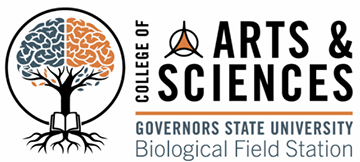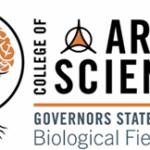
Governors State University (GSU) is situated at the urban-rural interface near Chicago, and manages the 144-acre Biological Field Station, part of a nearly 1,600-acre contiguous preserve managed by multiple agencies. The preserve features a diverse range of habitats, including wetlands, forests, and prairies, and is an ideal site for research on urban expansion, conservation, and environmental health. The Field Station also offers trails for public access and research, and GSU has contributed to the preservation of high-quality streams like Thorn Creek, which is essential for regional stream protection and reducing downstream flooding.
The Field Station supports a variety of educational and research activities, including studies on bird nesting, hydrology, and small mammal populations. GSU operates a bird banding station as part of the MAPS program, contributing data on North American landbird populations. Students and faculty conduct extensive fieldwork, ranging from foraging behavior studies to water quality analysis and invertebrate sampling, which has led to national presentations, peer-reviewed publications, and ongoing research projects.
The facility is also used for practical, hands-on courses in biology, such as forensics, zoology, microbiology, and ecology. Future research will focus on topics like carbon sequestration in oak forests and prairie restoration. The integration of environmental features on campus, such as solar arrays and permeable parking lots, reinforces GSU’s leadership in environmental science. The Field Station continues to enhance learning opportunities and serves as a base for STEAM programs, inspiring students to explore careers in environmental science and conservation.
-

- North America
- 1 University Parkway - on Draille Road
- University Park
- 60484
- United States
- Illinois
- 41
- 87
- jyunger@govst.edu
- https://www.govst.edu/bio-field-station/
- 1995
- 2000
- Yes
- Governors State University
- 1 University Parkway
- University Park
- 60484
- United States
- Illinois
- John Yunger
- jyunger@govst.edu
- Professor of Biology
- 1 University Parkway
- +17085344524
- John Yunger
- jyunger@govst.edu
- Clare Tang, Science Chair
- xtang@govst.edu
- Rhonda Jackson
- rjackson@govst.edu
- jyunger@govst.edu
- $0 - $50,000
- 1-100
- No
- Village of Park Forest and Thorn Creek Preservation
- Yes
- Yes
- 0
- 0
- Yes
- Yes
- On Grid
- 0-20 minutes
- Yes
- Continuing Education/Informal learning
- Terrestrial
- Temperate Forest
- 101-300 meters
- 101-300 meters
- D (continental)
- Yes
- Rural
- Yes
- Yes
- Yes
- Yes
- Yes
- Yes
- Yes
- 6
- 4
- Year Founded
- 1995
- Year Joined OBFS
- 2000
- Size of Field Station (hectares)
- 1-100
- FSML Web Address
- https://www.govst.edu/bio-field-station/
- Private nonprofit organization?
- No
- Universities affiliated / Parent Organization
- Governors State University
- Federal, state, or local governmental partners?
-
No
- Member of the Virtual Field
- No

